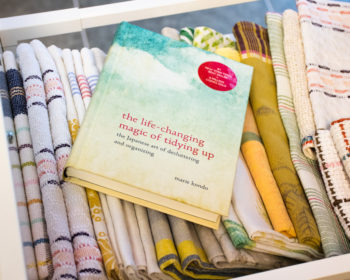The Indexing Society of Canada / Société canadienne d’indexation (ISC/SCI) is Canada’s national association of indexers.
We invite you to find an indexer for your project, read our publications, discover our conferences, events, and resources for indexers, find out about membership, and learn about the Society.
Find an indexer
Find an indexer who works in the subject area of your project.
Find resources
Find information about indexes, indexing practices, and training in indexing.
Attend an event
Attend a local meeting of indexers or attend the annual conference.
Become a member
Join the Society and enjoy the benefits of membership.
Featured Post
What practices will help me with good index term selection?
ISC/SCI Conference Program Announced
Indexing Society of Canada
The ISC/SCI has set the program for the 2019 conference taking place in Ottawa on May 24 and 25.
In keeping with the conference theme, Beyond the Page—New Platforms, New Realities, the program offers a variety of topics that are timely and informative for new and experienced indexers alike.
Sessions on indexing practices include working with scholarly texts (Enid Zafran), biography and memoirs (Kendra Millis), structuring indexes (Fred Liese), and editing indexes “from the get-go” (Anne Fifer). Kate Mertes will talk about a growing and profitable market that you’ve probably never heard: of the indexing of locora.
Special sessions taking us “beyond the page” include
- solutions toward decolonizing access and classification presented by a panel from the Indigenous Matters Committee of the Canadian Federation of Library Associations (they raised this issue in response to the Truth and Reconciliation Committee report)
- a step into the world of parliamentary information—an underpinning of informed democratic engagement—with Martine Rocheleau and the House of Commons indexers on intelligence-based search
- a discussion of ethics presented by Christine Jacobs and a panel of indexers and editors
- business practices by Pierre Joyal
- techniques that will change the way you work—physically and mentally—to restore energy and reduce stress, in a mini-workshop given by Ruth Paulauskas, founder of BreathWoRx
Following the conference on May 26 is a full-day workshop “Names: The Challenge of Indexing” by Enid Zafran.
Conference packages are available for Friday-only, Saturday-only, or both days. Full-time students receive a special reduced rate. As a reminder, we have discounted rates for accommodations.
Early Bird pricing is on now until April 15. Visit the conference page for the full conference agenda and links to the registration form.
Registration Now Open
Indexing Society of Canada
The annual ISC/SCI conference in Ottawa is now open for Early Bird registration.
Take advantage of these early bird rates until April 15:
- Members (including ASI, ANSZI, SI, all other affiliates and Editors Canada): $291 for full two-day conference, $159 for one day
- Non-members: $344 for two-day conference, $211 for one day
- Special rate for eligible full-time students: $158 for the two-day conference and $80 for one day.
And on Sunday we have a workshop “Names”, presented by Enid Zafran, $105.
All prices are in Canadian Dollars.
The program so far includes expert indexers on indexing scholarly work, indexing biographies and memoirs, and for our technical tool bag, structuring indexes, editing without pain, and indexing software. Specialty topics include Kate Mertes on the practice of indexing locora and the Ottawa Hansard indexers on the intelligence-based search engine for parliamentary information. We also have a number of special guests who you’ll hear more about soon.
Register now before Early Bird pricing ends April 15.
Does it spark joy?
JoAnne Burek
 Marie Kondo, the author of The Life Changing Magic of Tidying Up, teaches a method to help us deal with the material items in our lives. In her Netflix series, “Tidying Up with Marie Kondo”, she helps desperate unhappy people who are wallowing in clutter by showing them how to get their houses in order once and for all. Her method includes techniques, such as folding laundry, as well as approaches toward material things, like thanking an item for its service before you discard it. To decide what to keep and what to let go, you ask yourself “Does this spark joy?”
Marie Kondo, the author of The Life Changing Magic of Tidying Up, teaches a method to help us deal with the material items in our lives. In her Netflix series, “Tidying Up with Marie Kondo”, she helps desperate unhappy people who are wallowing in clutter by showing them how to get their houses in order once and for all. Her method includes techniques, such as folding laundry, as well as approaches toward material things, like thanking an item for its service before you discard it. To decide what to keep and what to let go, you ask yourself “Does this spark joy?”
Indexers know well the joy of finishing an index. It’s an intense process that can get away on you if you’re not careful. You’re not done just because you’ve typed in all the entries. You still have the editing, and that’s where it’s easy to go over budget. You’re conscientious about your work and you’re not going to turn in an index that doesn’t spark joy for your client.
Anne Fifer has a way to make editing less grueling. She is going to give us techniques, approaches, and more when she presents “Editing without pain: Getting your index in shape from the get-go” at the conference in Ottawa, May 24-25.
Applications are Open for the Mary Newberry Mentorship Program!
Stephen Ullstrom
As announced at the ISC/SCI AGM in June 2018, this is a new initiative to help both new and mature indexers develop their skills and businesses, to promote excellence in indexing, and to foster relationships within the society.
This is also our first call for applications.
A few points to note:
- Applications will be accepted on a rolling basis, and will be treated on a first-come-first-serve basis. So get your applications in early.
- We will do our best to find an appropriate mentor, though we cannot guarantee a match or that a mentor will be available right away. We will reply within 30 days, at the latest, about the status of your application and whether we have been able to find a mentor.
- As this will be the first cohort, we will be capping the number of concurrent mentorships at six. This cap may change in the future as the program progresses.
- More information about the program is available at www.indexers.ca/mentorship.
- To apply, please fill out and submit the application form and the career development exercise to mentorship@indexers.ca. The forms are also available at www.indexers.ca/mentorship.
- Mentees accepted into the program will pay a $100 fee. This will be due after the mentee has been matched with a mentor.
Please ask if you have any questions. We are happy to answer.
We look forward to receiving your applications, and to fruitful mentorships.
Post Conference Workshop Announced
Indexing Society of Canada
 Indexing names sounds so easy. But names indexing is so much broader than just people—it really encompasses all proper nouns and titles and places—and it requires lots of decision-making and judgment calls on the part of the indexer. No matter what subject area you specialize in, you encounter these name-related issues.
Indexing names sounds so easy. But names indexing is so much broader than just people—it really encompasses all proper nouns and titles and places—and it requires lots of decision-making and judgment calls on the part of the indexer. No matter what subject area you specialize in, you encounter these name-related issues.
You face the challenges of “foreign” or “ancient” cultures, the possibility of names changing over a lifetime, and countries with former names, present names, and official names. You encounter royals, religious figures, fictional characters, and pseudonyms.
Authors introduce their own wrinkles into our jobs, creating confusion with multiple spellings, and setting up expectations that we don’t even know about in terms of what we should include and exclude from the index.
As our presenter Enid L. Zafran says, “There is so much to talk about in terms of indexing names that we need a whole day devoted to it.”
And that is why the ISC/SCI has chosen to offer a full-day post-conference workshop on “Names” conducted by Enid. She will tell us short-cuts and strategies for entry methods, detail what to include in a entry like parenthetical glosses, how many postings to make per “name,” explain when a name is indexable, and discuss the sorting requirements. Practical advice about dealing with clients and pricing the indexing are interspersed throughout.
To solidify your learning, the workshop includes two hands-on exercises where you’ll practice your new knowledge in expertly navigating names issues.
Please note that this is also the last event of Enid’s public-speaking career—she is hanging up her “presenter” hat, and you won’t want to miss out on this final chance to hear one of the most popular U.S. indexing experts. She has given talks at past ISC/SCI conferences as well as numerous chapter and national conferences in the United States. Her books and articles have offered guidance to many of us for the past few decades. We are honored that Enid has chosen to end this part of her career by coming to Ottawa and spending the day with us!
The ISC/SCI conference is in Ottawa on May 24 – 25, and the “Names” workshop will be held May 26. Registration for both will be on the conference page in a few weeks.
